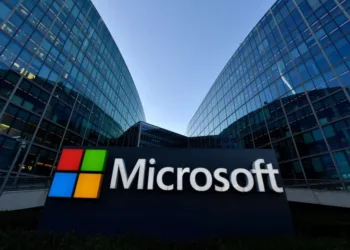Intel’s former CEO Pat Gelsinger has publicly acknowledged that he “underestimated the impact of artificial intelligence,” a strategic misstep that left the chip giant struggling to compete in the AI accelerator market worth hundreds of billions.

Table of Contents
Gelsinger’s AI Misjudgment: A Costly Strategic Error
In a recent interview with Nikkei Asia, Gelsinger admitted that “I and pretty much everybody underestimated the impact of artificial intelligence.” This miscalculation has cost Intel significantly, allowing competitors like NVIDIA and AMD to dominate the AI chip market.
| Intel’s AI Challenges | Impact |
|---|---|
| Gaudi AI Accelerators | Limited cloud adoption |
| Falcon Shores Project | Canceled in 2024 |
| Market Position | Far behind NVIDIA/AMD |
| Focus Error | Inference vs. training |
| New Strategy | Jaguar Shores development |
| Leadership Change | Lip-Bu Tan as new CEO |
The Strategic Misstep That Changed Everything
Intel’s fundamental error was focusing on AI inference while competitors invested heavily in model training. Gelsinger initially believed inference would be the primary market driver, even dismissing NVIDIA’s CUDA as merely a “moat” that could be overcome.

This misjudgment proved catastrophic. While Intel developed Gaudi AI accelerators, they’ve seen minimal adoption from cloud companies, highlighting the company’s inability to compete effectively in the AI space.
Intel’s Current AI Struggles
The consequences of this strategic error are now visible across Intel’s AI initiatives. The company’s ambitious Falcon Shores accelerator project was canceled, and Intel is scrambling to enter the rack-scale market with Jaguar Shores. Meanwhile, competitors have generated hundreds of billions in AI revenue over recent quarters.
Intel’s new CEO Lip-Bu Tan is now pivoting away from the IDM 2.0 strategy, focusing less on foundry business and more on chip design – one of Intel’s traditional strengths. This shift represents a significant departure from Gelsinger’s integrated manufacturing approach.
What This Means for Intel’s Future
The admission highlights Intel’s broader challenges in adapting to rapidly evolving technology trends. While the company maintains strength in traditional CPU markets with Xeon server processors, it’s struggling to establish relevance in the AI accelerator space.

For technology enthusiasts following the semiconductor industry, Intel’s AI misstep serves as a cautionary tale about the importance of correctly identifying and investing in emerging technologies. The company’s future depends on whether new leadership can successfully pivot toward competitive AI solutions.
As Intel works to rebuild its AI strategy under new leadership, the industry watches to see if the chip giant can recover from this costly strategic error and regain competitive positioning in the AI market.
FAQs
Why did Intel struggle in the AI chip market?
Intel focused on AI inference while competitors invested in model training, missing the market’s primary growth driver.
What happened to Intel’s Falcon Shores AI project?
The ambitious AI accelerator project was canceled, with Intel now developing Jaguar Shores instead.








